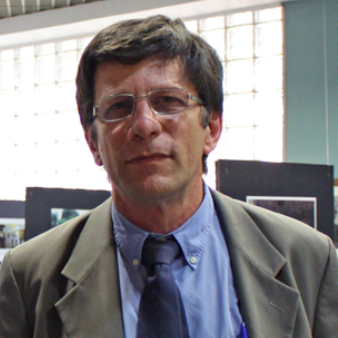
Academic Background
- 2011 Associate Professor at the University of São Paulo (USP), Brazil.
Title: The Legitimation of Reason: Language and Will in Augustinian Philosophy - 1997 PhD in Philosophy at the University of São Paulo
Supervisor: Prof. Luiz Henrique Lopes dos Santos.
Title: Man's Free Will and Divine Foreknowledge, According to Augustine of Hippo - 1993 Master’s Degree in Philosophy at the University of São Paulo
Supervisor: Prof. Luiz Henrique Lopes dos Santos.
Title: Eternity and Time in Book XI of the Confessions of Augustine of Hippo - 1988 Bachelor’s Degree in Philosophy at the University of São Paulo
Current Research
Liberal disciplines and interiorization in Augustine
This new project continues the studies carried out in the first two years, still observing two dimensions: the divine regime of interiority and the inspection of the soul as the place of a conflict between the servile inclination to exteriority and the possibility of a rediscovery of interiority and freedom. In the first place, we intend to study the Cassiciacum Dialogues: Contra Academicos, de Beata Vita, de Ordine, and Soliloquia, having as a question the presumed association between primacy of interiority and necessity of overcoming the internal fray. After analyzing these works, we will return to the trajectory of the trinitarian analyses, which seek to explore the inadequacies of the interiority of reason and will in view of the search for the transcendent trinity.
Translation of the Prologues of Thomas Aquinas’s commentaries on the works of Aristotle
The set of the “prologues” of Aquinas’ commentaries on Aristotle's works constitutes a first introduction to one of the most relevant aspects of the author’s own philosophical contribution. Hence the intrinsic importance of translating them, besides that, given our lack of tradition in translating medieval authors, it is hoped that the joint discussion of the philosophical and philological problems raised by the translation will lead to the fine tuning of working parameters collectively established, as well as the determination of shared theoretical reference.
| Pesquisador | Título da pesquisa | Categoria |
|---|---|---|
| TIAGO APARECIDO FREIRE | Augustine of Hippo and the distinction between science and wisdom “in The Trinity”, XII | Doctorate Degree |
| MOISES ALVES DE SOUZA | Perfection as a consequence of the unity of the active and contemplative life in Master Eckhart, according to his interpretation of Sermon 86. | Doctorate Degree |
| MAURO LUIZ DO NASCIMENTO JÚNIOR | THE CONCEPT OF GIFT AS MEDIATION BETWEEN PREDESTINATION AND FREE WILL IN THE LATE WORKS OF AUGUSTINE OF HIPPO | Doctorate Degree |
| LEANDRO BACHEGA | The peace and the social order on Augustine's The city of God | Doctorate Degree |
| MIZAEL PINTO DE SOUZA | Utrum Mundus Potuerit Sempre Fuisse: Thomas Aquinas and the Medieval Controversy on the Eternity of the World | Doctorate Degree |

